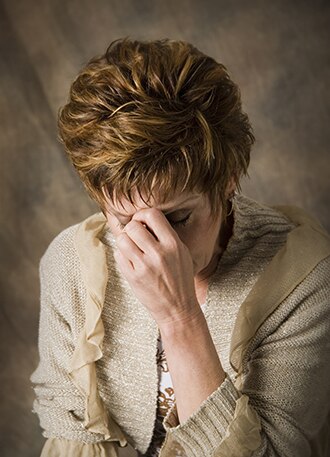Definition & Facts of Fecal Incontinence
In this section:
- What is fecal incontinence?
- Does fecal incontinence have other names?
- How common is fecal incontinence?
- Who is more likely to have fecal incontinence?
- What other health problems do people with fecal incontinence have?
- What problems may fecal incontinence cause?
What is fecal incontinence?
Fecal incontinence, also called accidental bowel leakage, is the accidental passing of bowel movements—including solid stools, liquid stools, or mucus—from your anus.
The most common type of fecal incontinence is called urge incontinence. When you have urge incontinence, you feel a strong urge to have a bowel movement but cannot stop it before reaching a toilet. If you have urge incontinence, your pelvic floor muscles may be too weak to hold back a bowel movement due to muscle injury or nerve damage.
Another type of fecal incontinence is called passive incontinence. When you have passive incontinence, leakage occurs without you knowing it. If you have passive incontinence, your body may not be able to sense when your rectum is full.
Fecal incontinence can be upsetting and embarrassing. Some people may feel ashamed and try to hide the problem. You may be afraid or embarrassed to talk about fecal incontinence with your doctor. However, talking openly and honestly with your doctor is important in diagnosing and treating your fecal incontinence.

Does fecal incontinence have other names?
Fecal incontinence is also called
- accidental bowel leakage
- bowel incontinence
- encopresis—a term used mostly for fecal incontinence in children
How common is fecal incontinence?
Medical experts consider fecal incontinence a common problem, affecting about 1 in 3 people who see a primary health care provider.1
- Fecal incontinence is more common in older adults.2
- Among adults who are not in hospitals or nursing homes, between 7 and 15 out of 100 have fecal incontinence.1
- Among adults who are in hospitals, between 18 and 33 out of 100 have fecal incontinence.3
- Among adults who are in nursing homes, between 50 and 70 out of 100 have fecal incontinence.2
Fecal incontinence occurs in about 2 out of 100 children.4
Who is more likely to have fecal incontinence?
You may be more likely to have fecal incontinence if you
- are older than age 65
- are not physically active
- have certain chronic diseases, medical conditions, or health problems
- have had your gallbladder removed
- are a current smoker
Children who were born with certain birth defects of the spinal cord, anus, or rectum are more likely to have fecal incontinence. Children who are constipated are also more likely to have fecal incontinence.
What other health problems do people with fecal incontinence have?
If you have fecal incontinence, you may also have other health problems, including
- diarrhea
- poor overall health
- chronic diseases and disorders such as
- irritable bowel syndrome
- type 2 diabetes
- diseases that affect the nerves of your anus, pelvic floor, or rectum
- inflammatory bowel disease
- damage to or weakness of the muscles of your anus, pelvic floor, or rectum
- damage to the nerves in your anus, pelvic floor, or rectum
- urinary incontinence
- proctitis
What problems may fecal incontinence cause?
The problems that fecal incontinence may cause include
- discomfort or irritation of the skin around the anus
- emotional and social distress, such as fear, embarrassment, social isolation, loss of self-esteem, anger, or depression
- quality-of-life issues, such as not being able to exercise, work, attend school, or go to social gatherings
References
This content is provided as a service of the National Institute of Diabetes and Digestive and Kidney Diseases
(NIDDK), part of the National Institutes of Health. NIDDK translates and disseminates research findings to increase knowledge and understanding about health and disease among patients, health professionals, and the public. Content produced by NIDDK is carefully reviewed by NIDDK scientists and other experts.
The NIDDK would like to thank:
William E. Whitehead, Ph.D., University of North Carolina School of Medicine

